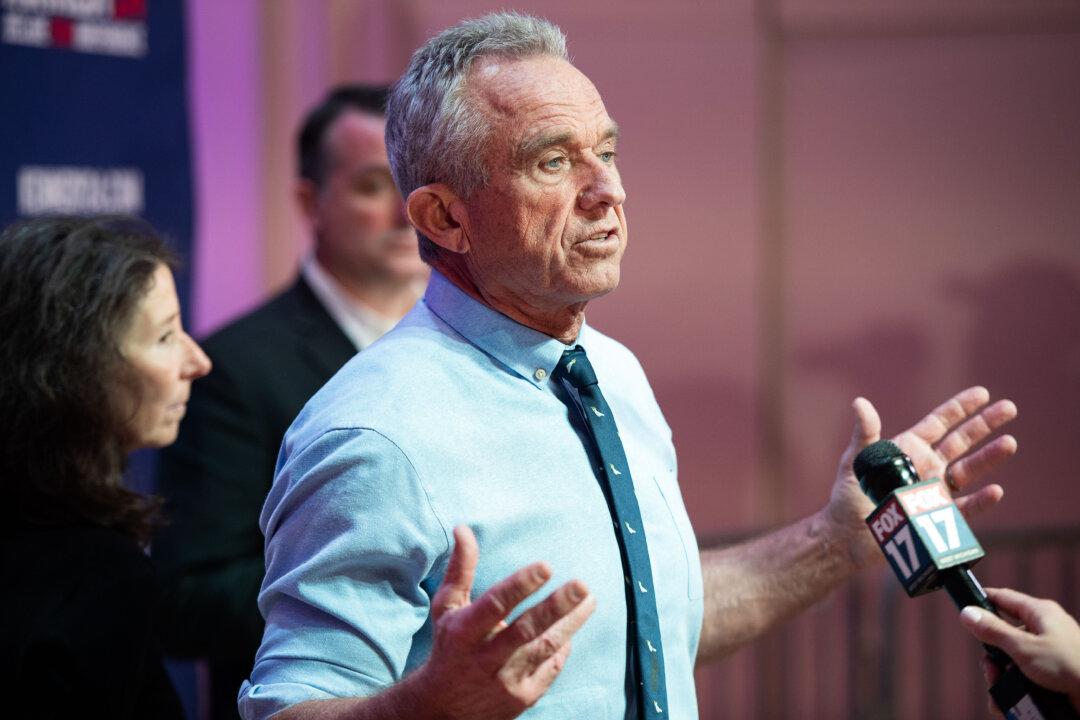Robert F. Kennedy Jr. vowed on April 5 to appoint a special prosecutor, if he’s elected president, to investigate whether prosecutors bringing cases against people over the Jan. 6, 2021, breach of the U.S. Capitol have abused their power.
“Like many reasonable Americans, I am concerned about the possibility that political objectives motivated the vigor of the prosecution of the J6 defendants, their long sentences, and their harsh treatment. That would fit a disturbing pattern of the weaponization of government agencies ... against political opponents,” Mr. Kennedy said in a statement.





